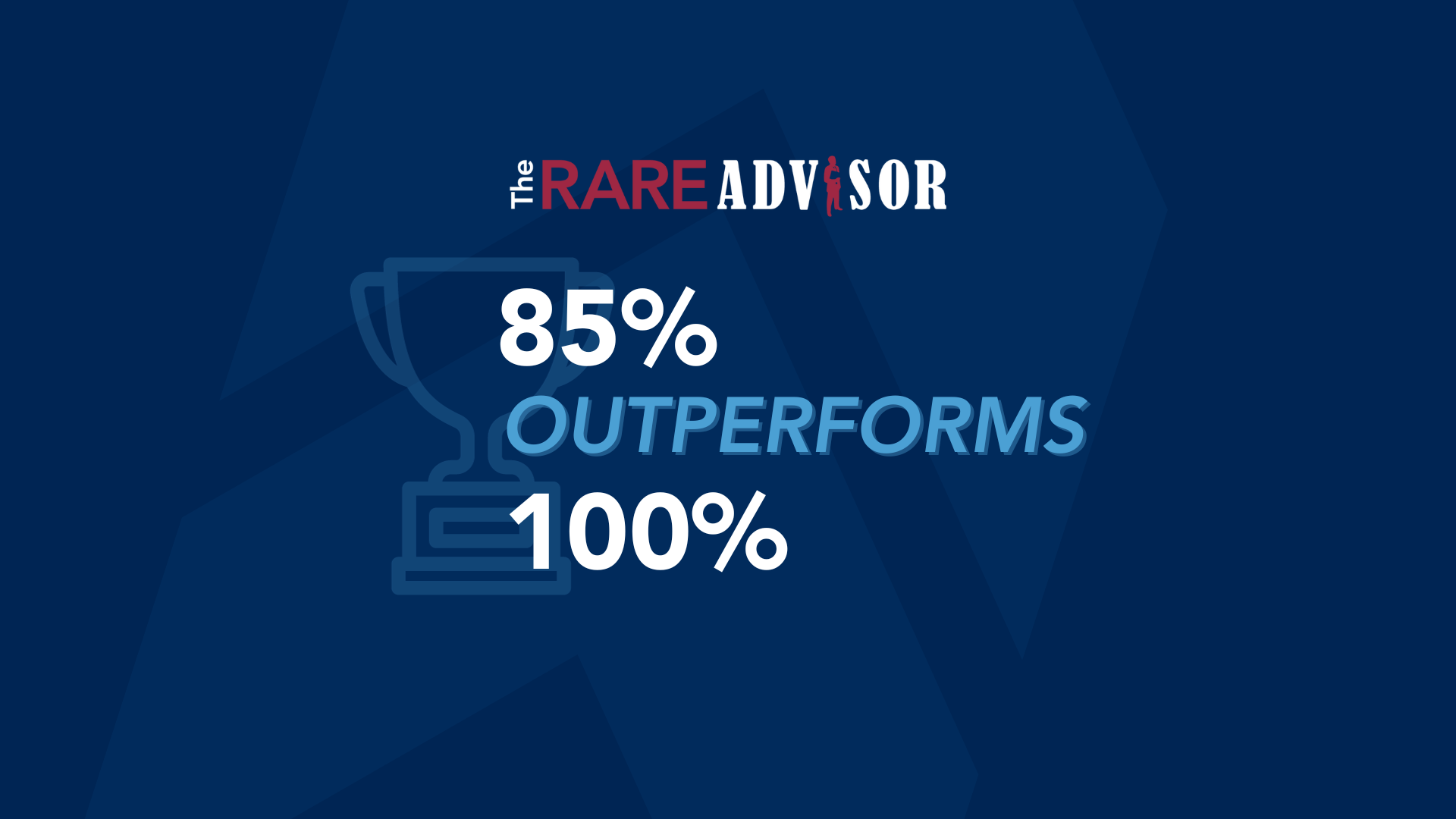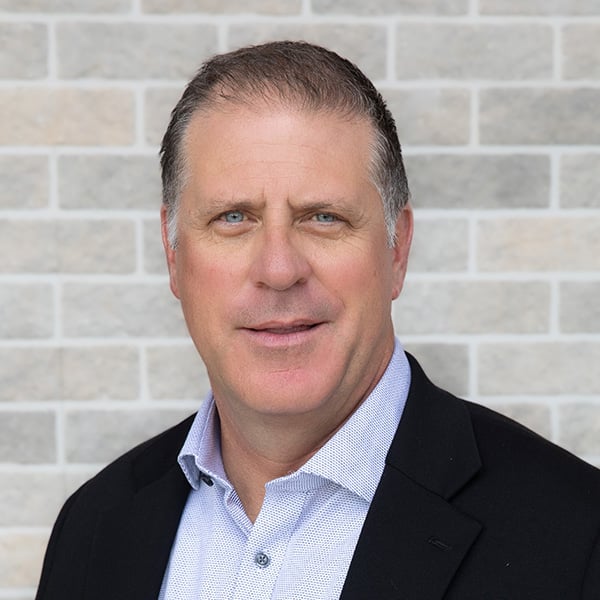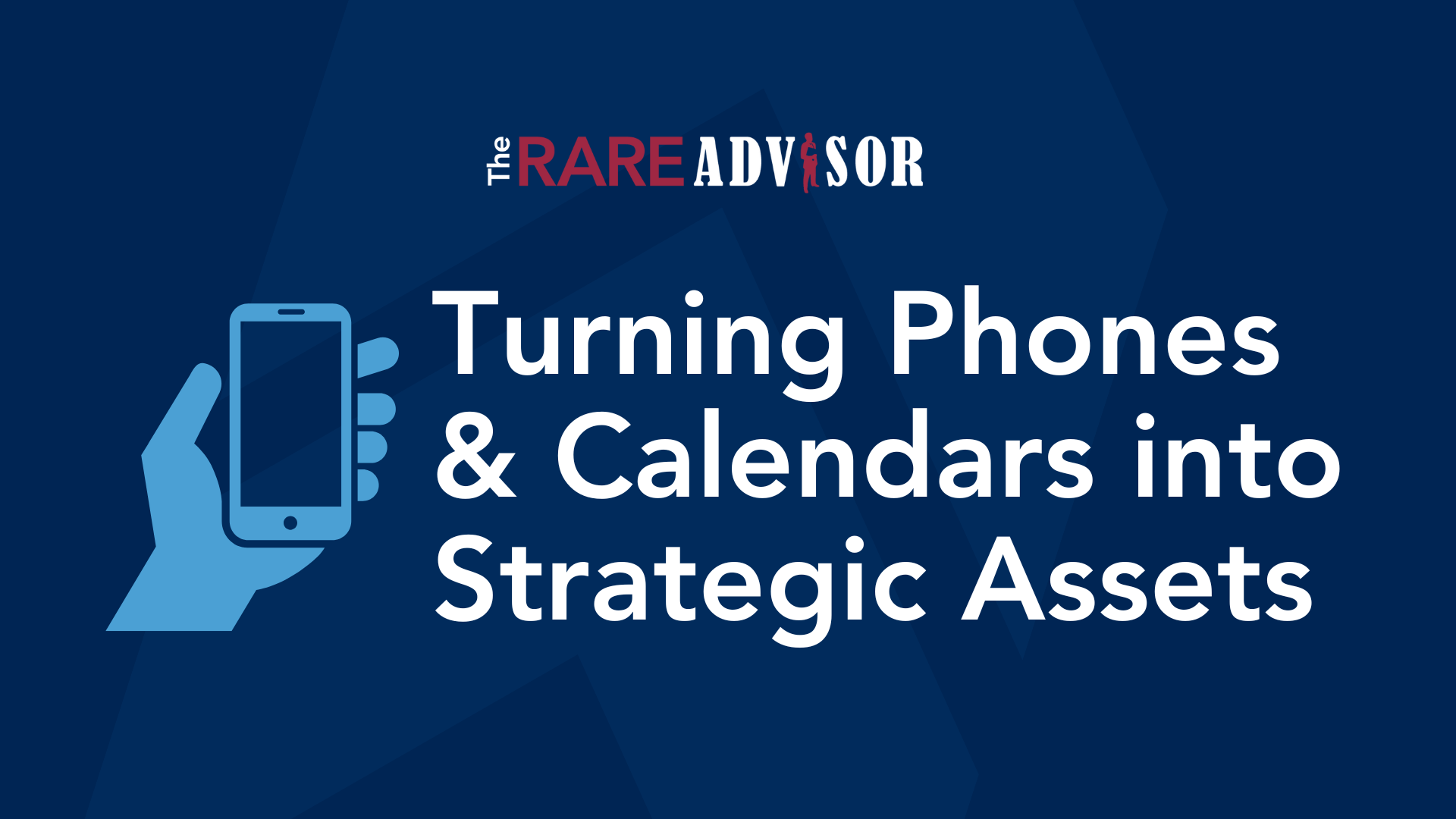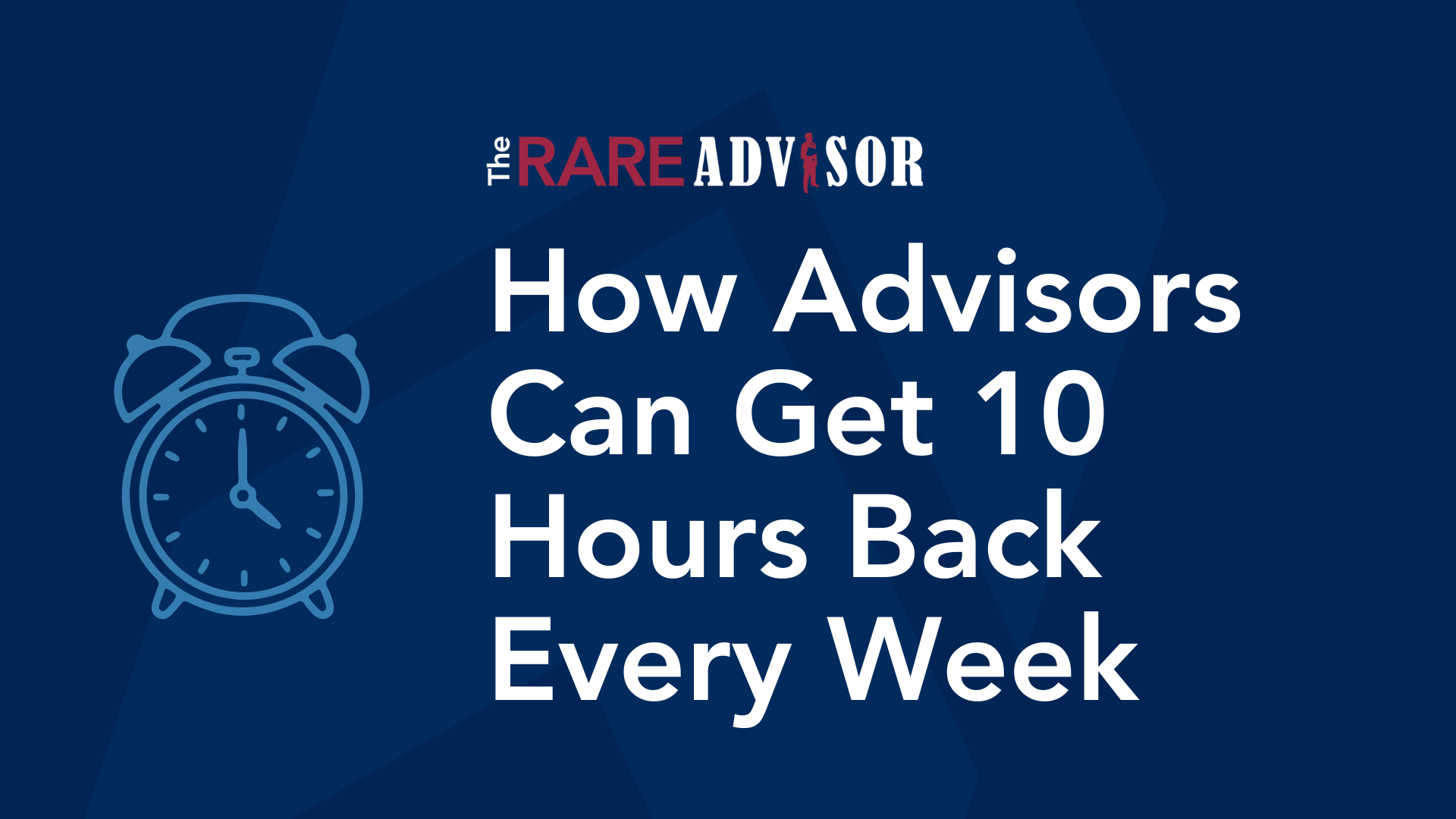The RARE Advisor: How 85% Beats 100%

In this episode of The RARE Advisor, we’re going to talk about when 85% can actually outperform 100%. It impacts your presentation quality and skills, your closing ratios, your projects – and just about anything – inside of your business.
I want to dive into a concept that we have been teaching for probably two or three decades here at USA Financial: we call it the 80% Rollout. There was recently an article in the Wall Street Journal on this particular topic, and I want to take an opportunity to give you a refresher on this concept if you've heard it before. And if you haven't, you are in for a treat. The idea is that something less than 100% will perform better than 100%. In this particular article, they're zeroing in primarily on 85%, rather than 80% - you're splitting hairs at that point. Nonetheless, it's essentially where 85% beats 100%. And this has to do with productivity. It has to do with effort in sports, in dealing with your clientele, it has to do with closing ratios, etc. But before I dive in, what I want to do is take you very quickly back to the roots of this (from what I've been told anyway) which is that it comes out of an engineering concept. The idea is that when you take a crack at something, your goal is simply to get it to 80% on the first go-around. Oftentimes, that's enough right there. But if you want to go back and revisit it (let's say it's a project or some kind of a thing that you can keep coming back to) and improve upon it, if you come back and take another 80% crack at the 20% that remains, 80% of that 20% is 16%. So when you add 16% to the first round, you're up to 96% by round two. If you do that, again, you're at 99%. And if you go any further, you are way too compulsive about it. The idea is also that oftentimes perfectionism is codeword for procrastination. A lot of times a perfectionist will talk to you about why they want something so perfect before they roll it out. But then they can never get it to the finish line and roll it out. It's actually procrastination being camouflaged as perfectionism.
Now, I want to spin it to the sales side. When you are performing at 85% of your effort, for lack of a better word, sometimes you'll be shocked that you will perform better than you do at 100% Because when you're at 100% you're wound so tight. It's very difficult. Perfect example: last night. My son is a doubles tennis player, and they're getting ready to go into the regionals right now. I went to watch him the other day and his serve was off. He's a very good server, he can put a lot of English on the ball and a lot of speed on the ball. And while watching him, when he is going back to serve, he's cranking on that thing at 100%. He's really going after it. But his serve was not landing. He was hitting the net, he was going long, it was a mess. Then his coach said to him, 'I want you to hit that first serve at 85%'. All of a sudden, they were all-in play. And he was acing the competitor left and right, which basically means he's getting a point on the serve because they couldn't return it. You can have that same argument in just about every sport. It's what is called a relaxed confidence: when you are confident in your skill set, and you don't push to the extreme outer bounds of your effort. It's not slacking, it's actually performing better than 100%. Now, they have since found in 2019 on this research paper, that learning and performing at 85% is actually ideal - meaning that if you make something too hard, and someone is giving the wrong answer more than 15% of the time, it tends to work against their learning. If you make it too easy, and they're getting 99 and 100% all the time, they're really not learning anything from their errors. The human brain learned best when it was faced with queries set to 85% difficulty.
The last piece is knowing when to stop, which is sort of where I started this conversation. The idea is to stop once you're 80% completed on a project, because oftentimes that first burst is what contains the meat of what you're trying to do in your effort. The remaining 20% would be better off spent somewhere else. Now, if we're talking about bringing new assets to your firm, there's a couple of things to understand that make this super important. Number one, this relaxed confidence is huge. If you feel like your back is to the wall and you have to close every single client, no matter what your closing ratio will go down because you're just trying too hard. And the potential new client, they can smell that desperation, one way or another, they just feel it. If you back off and you have a relaxed confidence about you, and you're okay if you're not working with every client (in fact, I'd argue you shouldn't be working with every client - you need a right fit client) your closing ratio will go up dramatically. And if you're spending way too long or too much effort on an appointment, you will burn everything out. You'll push too far. Don't take them past 80% of what they can handle in any given appointment. Because that will deteriorate your closing ratios as well.
So understand that this is when 85% outperforms 100%.
Now, if you're interested, we have a new, free report called the 'Advisor's 12-Step Reset for Predictable Growth, Value & Lifestyle'. It's a smooth, 12-step process that I've uncovered and discovered over my 35+ year journey in this industry. And it's designed to generate a predictable practice with automated revenue and lifetime rewards.
--
The RARE Advisor is a business model supercharged by Recurring And Repeatable Events. With more than thirty years of working with and coaching successful advisors, host Mike Walters (along with other leaders in the industry), discusses what it takes to grow a successful practice. With the aim of helping financial professionals and financial advisors take their business to the next level, Mike Walters shares insights and success stories that make a real impact. Regardless of the stage of your practice, The RARE Advisor will provide thoughtful guidance, suggestions for developing systems and processes that work, and ideas for creating an authentic experience for your clients.
The RARE Advisor is also a podcast! Subscribe today via Apple Podcasts, Google Podcasts, or your preferred podcast listening service for easier on-the-go listening.
Author Info

Mike Walters is the Chief Executive Officer (CEO) of USA Financial, leading the firm since its inception in 1988. Mike is committed to...
Related Posts

Access by Design: Turning Phones and Calendars into Strategic Assets
In this episode of The RARE Advisor, host Aaron Grady and practice management consultant Allan Oehrlein continue their discussion on time allocation by exploring what comes next: operationalizing structure across the entire advisory team. They break down why the phone is the “front door” to the firm and the calendar is the “engine room,” and how elite practices use standardized phone scripts, the strategic power of the word “unavailable,” intentional scheduling rules, and team empowerment to build consistency, capacity, and trust. Aaron and Allan outline how designed access—not unlimited access—creates scalability and a stronger client experience, while reducing reactivity, burnout, and advisor bottlenecks. They also offer practical challenges advisors can implement immediately to redesign their phone and scheduling processes in ways that elevate both team culture and enterprise value.

The Psychology Behind Your CTA: Why Prospects Don’t Click “Book a Call”
In this episode of Financial Advisor Marketing Playbook, Mark Mersman breaks down the real psychological barriers that stop prospects from clicking “book a call” on an advisor’s website—and how small language and design changes can dramatically improve conversions. You’ll learn practical, compliant fixes including softer CTA language, expectation statements, empathy‑based messaging, simplified design, and reassurance techniques that lower emotional friction. If you want a website that encourages prospects to take the first step confidently, this episode delivers actionable guidance advisors can implement immediately.

How Advisors Can Get 10 Hours Back Every Week
In this episode of The RARE Advisor, host Aaron Grady and USA Financial Pareto coach and Practice Management Consultant Allan Oehrlein dive into time allocation as a core lever for advisory success. They unpack the biggest time drains—email, unsolicited calls, and open-door interruptions—and lay out a practical framework for calendar rebalancing that starts with personal time, management time, client appointments, dedicated communications windows, “work on the business” time, and high-impact growth activities. With real-world stories showing how advisors shift from reactive days to structured weeks (and even reclaim Fridays), Aaron and Allan share easy-to-implement tips: color coding calendars, scheduling buffers, daily huddles, and call/appointment protocols. If you’re ready to audit your calendar, define your ideal week, and create structure that truly liberates your practice, this conversation is your next step.

Access by Design: Turning Phones and Calendars into Strategic Assets
In this episode of The RARE Advisor, host Aaron Grady and practice management consultant Allan Oehrlein continue their discussion on time allocation by exploring what comes next: operationalizing structure across the entire advisory team. They break down why the phone is the “front door” to the firm and the calendar is the “engine room,” and how elite practices use standardized phone scripts, the strategic power of the word “unavailable,” intentional scheduling rules, and team empowerment to build consistency, capacity, and trust. Aaron and Allan outline how designed access—not unlimited access—creates scalability and a stronger client experience, while reducing reactivity, burnout, and advisor bottlenecks. They also offer practical challenges advisors can implement immediately to redesign their phone and scheduling processes in ways that elevate both team culture and enterprise value.

The Psychology Behind Your CTA: Why Prospects Don’t Click “Book a Call”
In this episode of Financial Advisor Marketing Playbook, Mark Mersman breaks down the real psychological barriers that stop prospects from clicking “book a call” on an advisor’s website—and how small language and design changes can dramatically improve conversions. You’ll learn practical, compliant fixes including softer CTA language, expectation statements, empathy‑based messaging, simplified design, and reassurance techniques that lower emotional friction. If you want a website that encourages prospects to take the first step confidently, this episode delivers actionable guidance advisors can implement immediately.

How Advisors Can Get 10 Hours Back Every Week
In this episode of The RARE Advisor, host Aaron Grady and USA Financial Pareto coach and Practice Management Consultant Allan Oehrlein dive into time allocation as a core lever for advisory success. They unpack the biggest time drains—email, unsolicited calls, and open-door interruptions—and lay out a practical framework for calendar rebalancing that starts with personal time, management time, client appointments, dedicated communications windows, “work on the business” time, and high-impact growth activities. With real-world stories showing how advisors shift from reactive days to structured weeks (and even reclaim Fridays), Aaron and Allan share easy-to-implement tips: color coding calendars, scheduling buffers, daily huddles, and call/appointment protocols. If you’re ready to audit your calendar, define your ideal week, and create structure that truly liberates your practice, this conversation is your next step.

